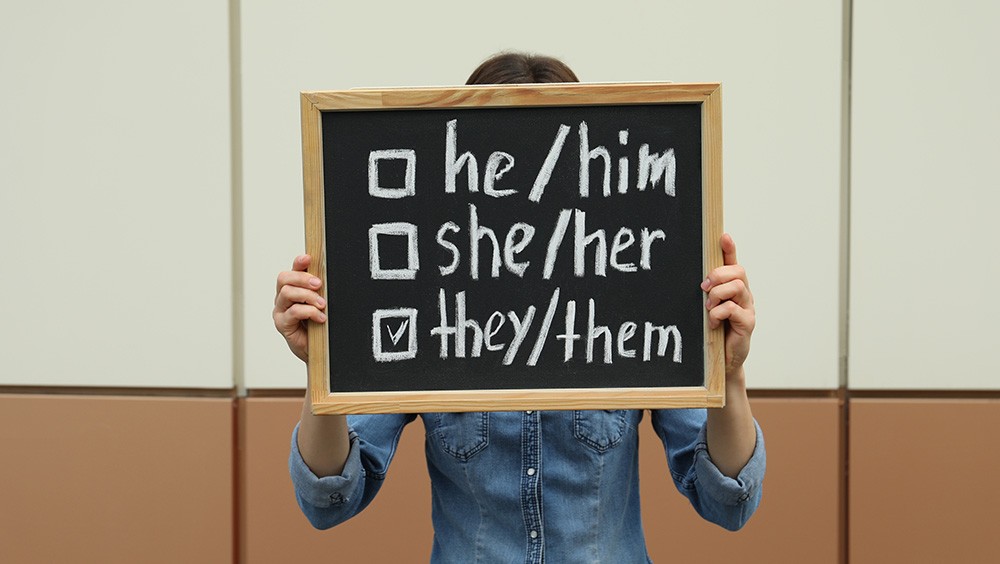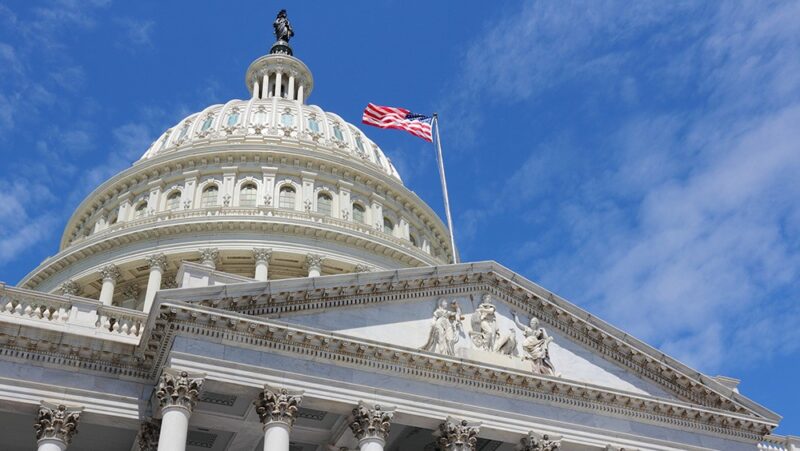Gender Pronouns and Free Speech: What You Need to Know

Gender pronoun policies generally require people to use students’ or employees’ preferred pronouns. The policies are designed to prohibit discrimination and promote human dignity.
The Human Rights Campaign has said, “using a person’s chosen name and pronouns is essential to affirming their identity and showing basic respect.”
Several states have passed laws that prohibit schools from having gender pronoun policies and say that schools cannot require teachers to identify students by their self-identified pronouns if those pronouns do not align with the student’s sex at birth. Critics contend that these laws prohibiting gender pronoun policies are unfair to the LGBTQ+ community.
Supporters of these laws say that, because the policies require certain speech and prohibit other speech, they present serious First Amendment issues. First, these policies essentially forbid certain speech on certain content. For example, they require people to say certain words or not say certain words. This is considered a content-based restriction on speech. As such, they must pass strict scrutiny to survive First Amendment review. Strict scrutiny is the highest form of judicial review, and it has two parts. The first part is the government must show that it has a very important reason for its regulation on speech, called a “compelling” reason. The second part is that the regulation must not be too broad.
One key difference about preferred pronoun policies in the workplace is whether an employer is a public employer or a private employer. A public employer’s policies generally must not violate the First Amendment, because public employers are state or government actors. A private employer, however, is not the government and so the First Amendment does not apply. Private employers generally can pass policies regulating pronoun usage without violating the First Amendment.
Gender pronouns, free speech and how courts have ruled so far
Several courts have analyzed whether pronoun policies violate the First Amendment. One of the more notable decisions involved a university professor at Ohio’s public Shawnee State University who contended that he was required to call students by the pronouns aligned with their gender identities. Transgender student Jane Doe had asked philosophy professor Nicholas Meriwether to call her by her preferred pronouns. He declined to do so and later contended that the policy violated his religious beliefs.
The Sixth U.S. Circuit Court of Appeals ruled in Meriwether v. Hartop (2021) that the university violated Meriwether’s First Amendment rights by punishing him for violating the university’s pronoun policy. University officials had informed faculty members that they could be disciplined if they “refused to use a pronoun that reflects a student’s self-asserted gender identity.”
A student had claimed that the professor had violated Title IX, the federal law forbidding sex discrimination in education, by refusing to identify the student by the student’s pronoun choice. University officials launched an investigation into whether the professor had violated Title IX. The professor argued that the policy unconstitutionally compelled him to engage in certain speech. Ultimately, the Sixth Circuit agreed with the professor and found that “[u]nder controlling Supreme Court and Sixth Circuit precedent, the First Amendment protects the academic speech of university professors.”
RELATED: Free speech in schools: What can students say?
Significantly, the Sixth Circuit elaborated that “the premise that gender identity is an idea ‘embraced and advocated by increasing numbers of people’ is all the more reason to protect the First Amendment rights of those who wish to voice a different view.”
A California appeals court reached a similar conclusion in the case Taking Offense v. State of California (2021). The state appeals court overturned a state law that required residents at long-term health care facilities be referred to by their self-identified pronouns. The state justified this law to combat discrimination, particularly against LGBTQ+ people.
However, the California appeals court recognized that the pronoun policy restricts speech based on its content. Such a policy is subject to strict scrutiny review under the First Amendment. While the appeals court recognized that the state has a compelling interest in eliminating discrimination, the court also found that the law was not narrowly tailored. The court explained:
“However, we conclude the pronoun provision — whether enforced through criminal or civil penalties — is overinclusive in that it restricts more speech than is necessary to achieve the government’s compelling interest in eliminating discrimination, including harassment, on the basis of sex.”
The California appeals court noted that the law went too far, because it “criminalizes even occasional, isolated, off-hand instances of willful misgendering — provided there has been at least one prior instance — without requiring that such occasional instances of misgendering amount to harassing or discriminatory conduct.”
This case has been appealed to the California Supreme Court and is pending.
These precedents provide powerful arguments to challenging pronoun policies. Policies by public employers or public college and university officials clearly are content-based restrictions on speech. It could be argued that these policies represent viewpoint discrimination, which is an egregious form of content discrimination. After all, the U.S. Supreme Court established in Matal v. Tam (2017) that “giving offense is a viewpoint.”
Gender pronouns, free speech, and harassment and discrimination
Governmental policies that require people to use particular pronouns present First Amendment issues. Supporters of such policies emphasize that federal and state nondiscrimination laws say employees, students and others should be free from severe and pervasive harassment in the workplace. It could be workplace harassment if an employee uses a non-preferred pronoun to harass or discriminate against another employee and if the employer does not take immediate corrective action to stop such discrimination.
There is significant tension between harassment law and the First Amendment. To achieve the government’s interest in reducing discrimination and protecting human dignity while aligning with the First Amendment, the policies would need to be narrowly tailored instead of overbroad. For example, the policy could apply to the use of pronouns in a way that constitutes severe and pervasive harassment rather than apply to occasional misgendering or to conversations not directed at the employee or student. Harassment that is not only tangible but also severe and pervasive is considered unprotected conduct, not protected speech.
Gender pronouns, free speech and compelled speech doctrine
When a governmental agency forces a public employee, a faculty member or other government representative to use certain language, the government arguably has unconstitutionally compelled speech in violation of the First Amendment. In other words, the government is saying, you must call someone by a specific pronoun. The government is requiring certain language. Thus, these pronoun policies may be challenged as forcing people to speak, a violation of the First Amendment.
The compelled speech doctrine originated with a student speech decision in West Virginia State Board of Education v. Barnette (1943). The case involved a school rule that required public school students to salute the American flag and recite the Pledge of Allegiance. The Supreme Court invalidated the law, finding that it unconstitutionally compelled students who were Jehovah’s Witnesses to engage in speech that violated their religious liberty and individual conscience.
The Barnette case established that the First Amendment not only applies when someone is punished for certain speech, but also when the government forces someone to say something they do not believe. The argument is that the government violates the First Amendment when it compels an employee to say certain pronouns instead of others.
Gender pronouns, free speech and religious claims
Another looming First Amendment issue involving pronoun policies is whether such policies violate an employee’s religious liberty rights. For example, the Virginia Supreme Court recognized in Vlaming v. West Point School Board (2023) that a high school French teacher had a religious liberty right to not have to refer to transgender students by their self-identified pronouns. The state high court explained that “[a]bsent a truly compelling reason for doing so, no government committed to these principles can lawfully coerce its citizens into pledging verbal allegiance to ideological views that violate their sincerely held religious beliefs.”
This decision's importance is that it shows that pronoun policies may violate the First Amendment and religious liberty rights under the federal or state Constitution.
The bottom line on pronouns and free speech
Preferred pronoun policies are becoming more frequent in the workplace and in the academic world. When these policies take place at places of public employment or public schooling, the First Amendment applies. Such policies present issues under the content discrimination principle, the compelled speech doctrine and religious liberty.
David L. Hudson, Jr. is a First Amendment fellow with Freedom Forum.
Five Freedoms, One Democracy
Watch: Can Government Officials Block You Online?
Related Content
2025 Al Neuharth Free Spirit and Journalism Conference
All-Expenses-Paid Trip To Washington, D.C.
June 22-27, 2025
Skill-Building
Network Growing
Head Start On Your Future

